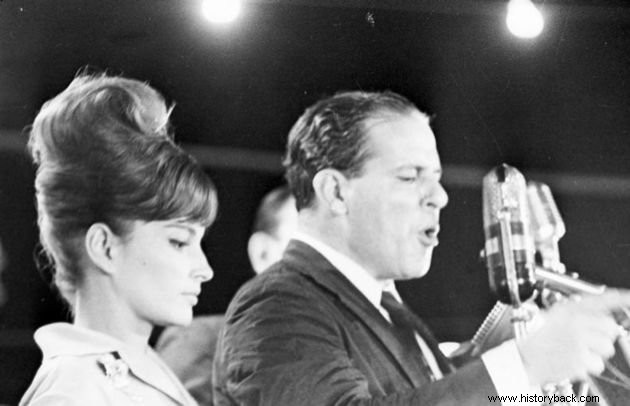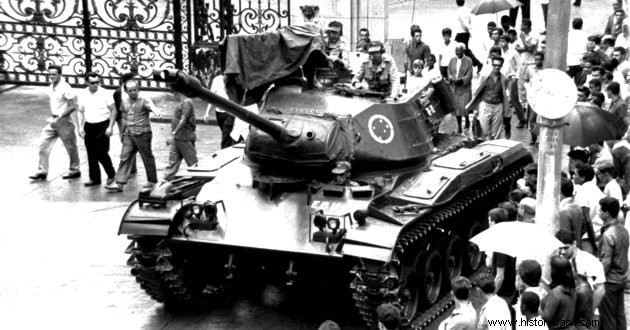The Military Coup 1964 was triggered on the night of March 31, with the deposition of President João Goulart.
This action against a legally constituted government marked the beginning of the military dictatorship in Brazil, which would last until 1984.
Among the main justifications for the coup was a possible communist threat posed by President João Goulart. The military activity was supported by a coalition formed by businessmen, landowners and companies with foreign capital.
The Catholic Church also played an important role in supporting the coup, as it was against communist guidelines. Later, however, part of the clergy would review this position and the Church became one of the great opponents of the regime.
Historical Context
Ever since Jânio Quadros resigned from the presidency in 1961, conservative sectors in Brazil were restless. They prevented João Goulart from taking office and only let him take office when the presidential regime was replaced by a parliamentary one for almost two years.
Only in 1963, João Goulart would return to being the president within the presidential regime. Despite the trips to the United States, in 1962, Goulart could not erase his “communist” tendencies. In fact, he came from the PTB and had a progressive speech, but he cannot be considered a convinced leftist at this time.
See also:Jânio QuadrosCentral do Brasil rally

On March 13, 1964, in search of popular support, the president promotes a Central do Brasil rally, in Rio de Janeiro. There, in front of 150,000 people, he announces a series of measures, known as the “basic reforms” that would soon be enacted.
At this time, he was accompanied by sectors of the left such as former governor Leonel Brizola, the General Command of Workers and the president of the Union of Students, José Serra.
The most controversial laws were the expropriation of land on the banks of highways, railways and public weirs. The second was the announcement of the takeover of private refineries by the State.
The following day, Jango would still announce the fixing of rent prices and the expropriation of vacant properties.
Family March with God for Freedom
This did not interest the military and sectors of the right. Therefore, part of society organizes marches such as the “March of the Family with God for Freedom”, supported by the Catholic Church, in response to Goulart's proposals in order to mark the differences between the government and the opposition.
March 31, 1964
The climate of polarization increased every day. Representatives of the workers, the CGT (Comando Geral dos Trabalhadores) tried to organize a general strike with the support of the government.
However, at dawn on March 31, the military took the tanks from the barracks and occupied several buildings of the federal administration.
President João Goulart even sought support traveling from Rio de Janeiro to Brasília on April 1, 1964, but gave up a confrontation with the military when he learned that allies such as Leonel Brizola and Miguel Arraes, governor of Pernambuco, were in prison.

It was also important to know that the coup had the support of the United States. So he went to Porto Alegre and from there he went into exile in Uruguay.
João Goulart had not yet left the country, when the then president of the Senate, Auro de Moura Andrade, declared the Presidency vacant. This was assumed on an interim basis by the president of the Chamber of Deputies, Ranieri Mazzilli.
Power, however, was exercised by the military, who on April 2 organized the so-called "Supreme Command of the Revolution", composed of the commands of the Air Force, Navy and Army.
See also:Military Dictatorship in Brazil (1964-1985)Coup or Revolution?
The military classified his acts as "Revolution". Supported by right-wing politicians, such as the governor of Guanabara Carlos Lacerda and part of the Catholic Church, the military intended to rid the country of communism in the polarized world of the Cold War.
On the other hand, this fact was treated as a coup by the left considering the character of suppression of democratic freedoms.
It is necessary to remember that João Goulart had been democratically elected and deposed by arms, which characterizes a coup.
See also:Military InterventionRead Also :
- Cold War
- Amnesty Law
- Direct Now
- Institutional Act nº5
- Brazilian History Questions in Enem
- Questions about the Military Dictatorship
